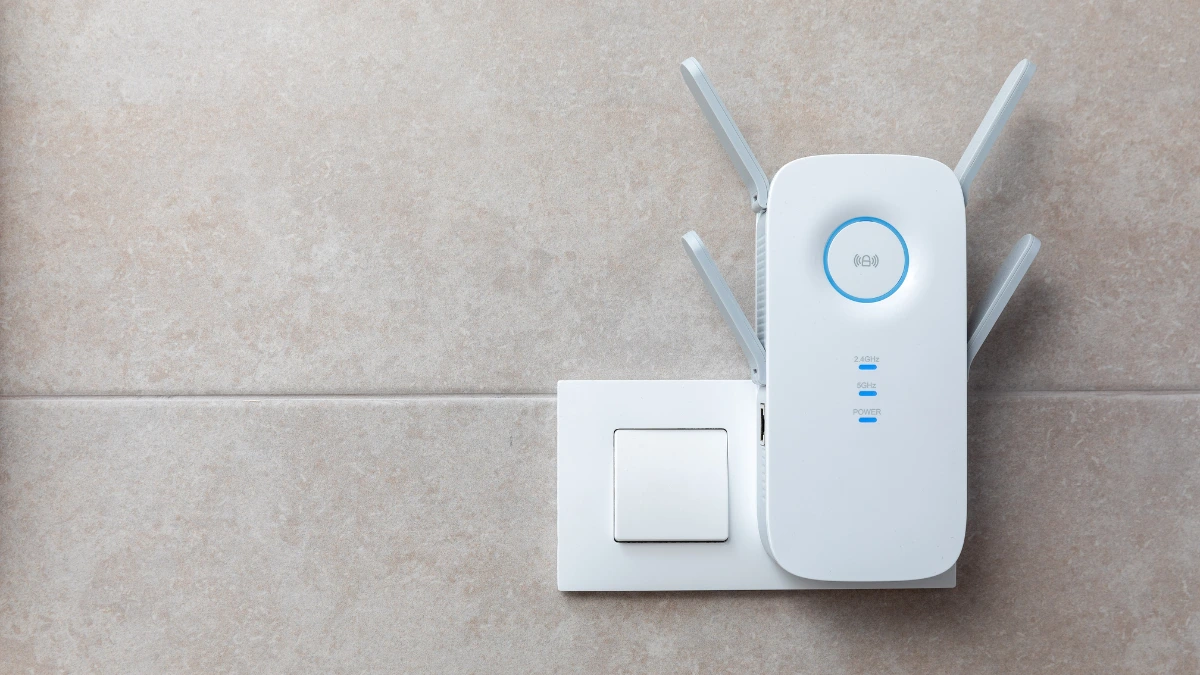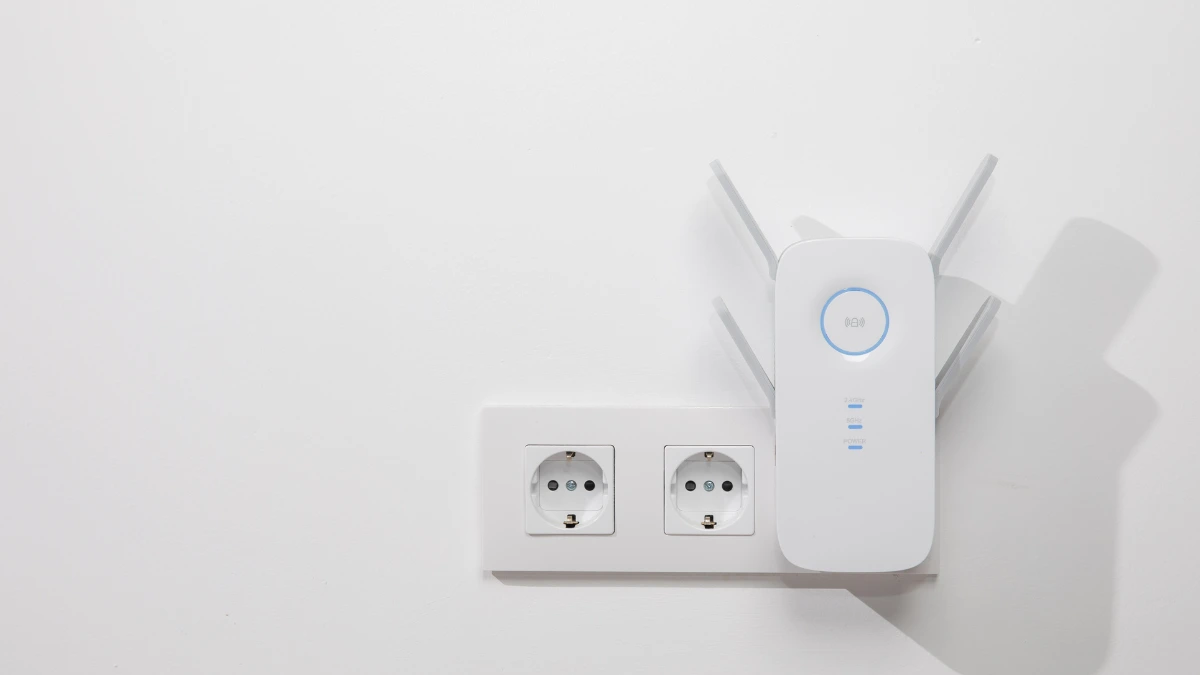Having a WiFi network that covers your entire home or office is something everyone wants nowadays. A WiFi extender can be the solution for those who want to increase productivity wherever they are.
A WiFi extender works to extend signal range, create a more stable connection, and overcome dead zones in your home or office.
This article will provide further explanation about WiFi extenders, including their definition, how they work, their functions, benefits, and regulations for their use in Indonesia.
What is a WiFi Extender?

A WiFi extender is an electronic device used to extend the range of a WiFi signal to a new network. This device receives signals from the main router via a connected Ethernet cable to amplify the signal and broadcast it to a wider area.
By creating a new network, the WiFi extender does not reduce the bandwidth of the main router. This means that the signal strength remains the same before and after installing this device.
How Does Wifi Extender Work?
A WiFi extender works by capturing signals from the main router and rebroadcasting them with a greater range. Here is how it works in detail:
- Receiving signals: The device receives WiFi signals from the main router using an Ethernet cable.
- Duplicating and extending: The received signals are duplicated and rebroadcast without reducing the bandwidth of the main router.
- Covering a wide area: The broadcast signal can reach areas that previously had a weak or no signal at all.
- Connecting to user devices: Devices such as laptops, phones, or tablets can be directly connected to the WiFi network as if they were connected directly to the main router.
The Functions of a WiFi Extender

The main function of a WiFi extender is to extend the WiFi signal range. The following are its functions:
- Extend signal range: Extend the signal of your main WiFi router without reducing bandwidth.
- Create a more stable connection: Make your WiFi connection fast and stable in areas that were previously weak or even out of range.
- Overcome dead zones: With its ability to extend range, the extender will overcome areas that are weak in WiFi signal or were previously out of range.
The Benefits of a WiFi Extender
The WiFi extender provides many benefits, especially in supporting a large home or office network, network configuration flexibility, and is more cost-effective. Here are some of the main benefits:
1. Supports large home or office networks
One of the benefits of a WiFi extender is that it supports large home or office networks. With large home and office areas or many obstacles blocking the router signal, an extender is very useful for spreading the signal throughout the entire area.
2. Supporting more devices

Supporting more devices is another benefit of extenders. With their ability to cover a wider area, more devices can connect to the WiFi network simultaneously.
3. Network configuration flexibility
WiFi extenders offer high flexibility. The devices can be easily moved to different locations as needed, providing flexibility in network configuration.
4. Like being connected to the main router
What does it mean to be connected to the main router? It means that even though your device is connected to the extender, its capabilities do not reduce the bandwidth of the main router at all. The connection strength will remain the same anywhere in your home or office.
5. More cost-effective
Another benefit of a WiFi extender is that it is more cost-effective. Compared to using a mesh system to extend WiFi coverage throughout an area, using an extender device can be a more affordable solution.
WiFi Extender Regulation in Indonesia

The WiFi extender uses communication technologies that operate within a specific frequency spectrum.
In Indonesia, a wireless device is required to have a DJID (Directorate General of Digital Infrastructure) under the Ministry of Communication and Digital (KOMDIGI).
WiFi extender type approval and regulation will be based on KEPMEN No. 12 Tahun 2025, which requires all radio frequency-based devices to meet specific technical standards before being sold in the country.
For devices that have at least two Ethernet cable ports, they will follow additional regulations regarding Ethernet as contained in KEPMEN No. 60 of 2022.
The DJID certification ensures that the product meets government safety and quality regulations and does not interfere with other communication devices.
The certification process involves technical testing, such as frequency adjustments, safety checks, and compatibility with the surrounding environment.
Once the tests are completed, products that pass are listed in a Test Result Report, which confirms that the product is safe and meets the requirements for sale in Indonesia. This report reassures customers that the product meets technical standards and is secure.
For companies wanting to sell a WiFi extender in Indonesia, our Type Approval Services for ICT Products are available to assist with this process.
This service includes preparing technical and legal documents, conducting required testing, ensuring compliance with regulations, helping companies streamline the certification process, and giving consumers confidence in certified products. [UN]